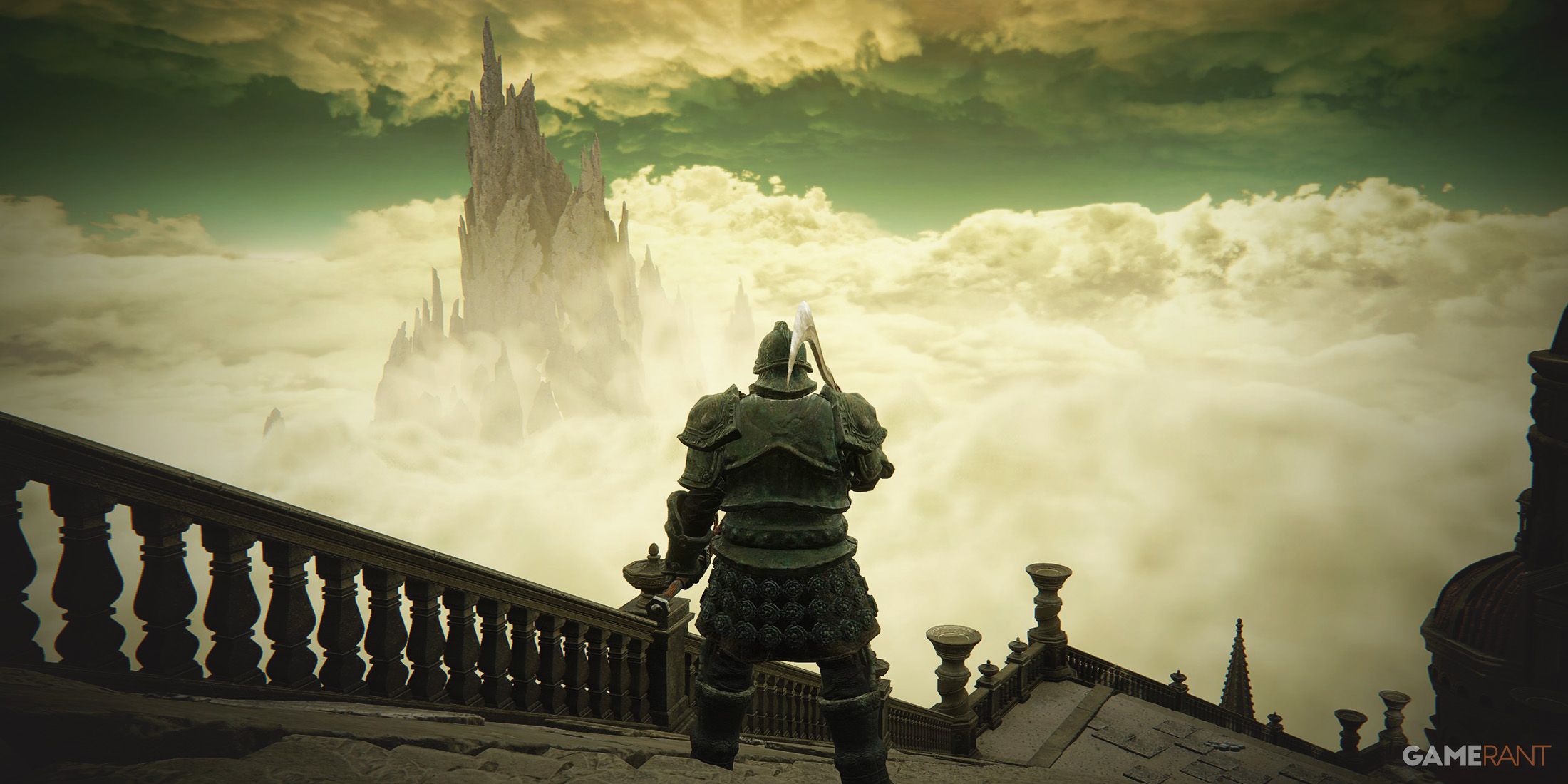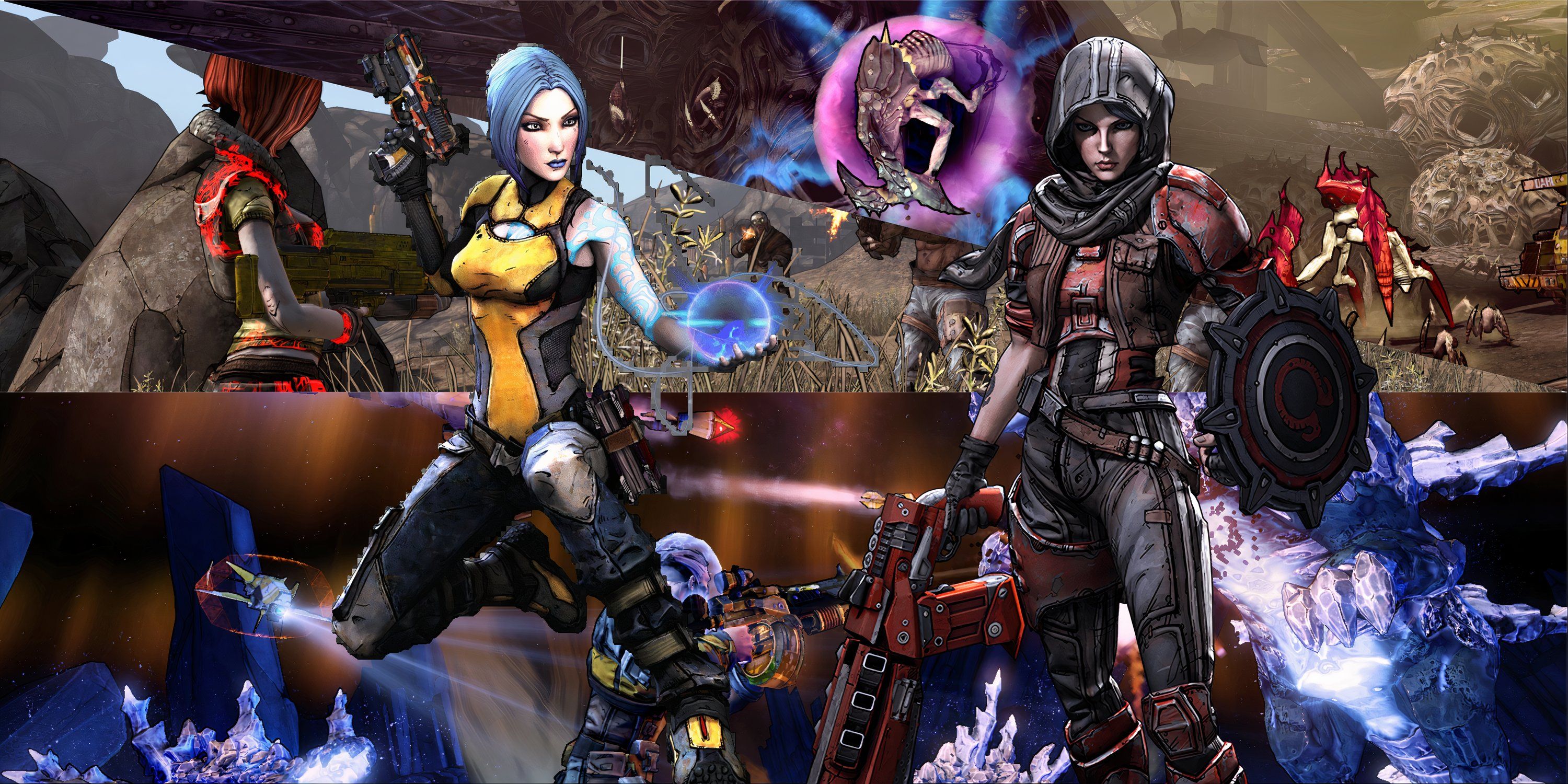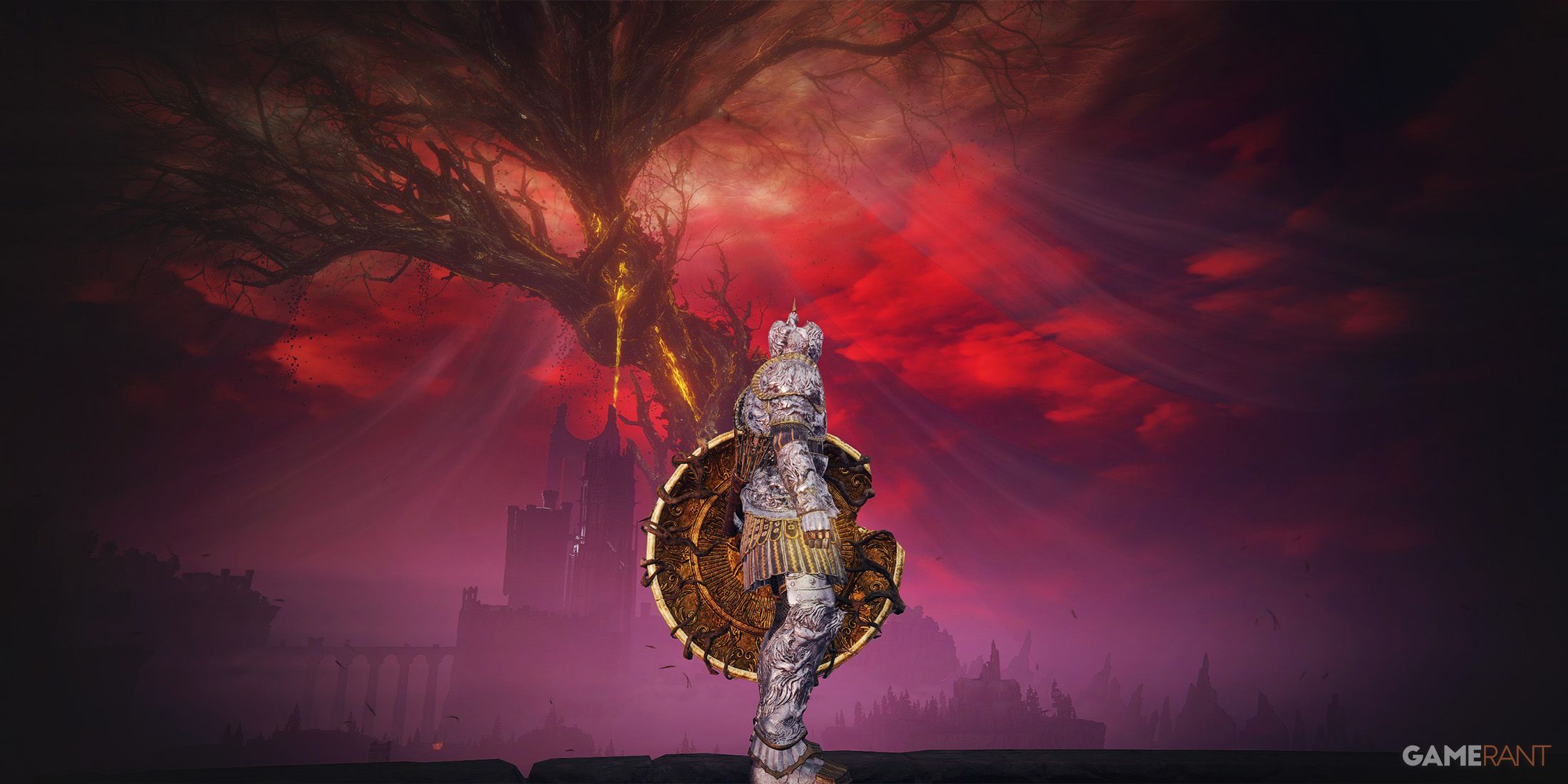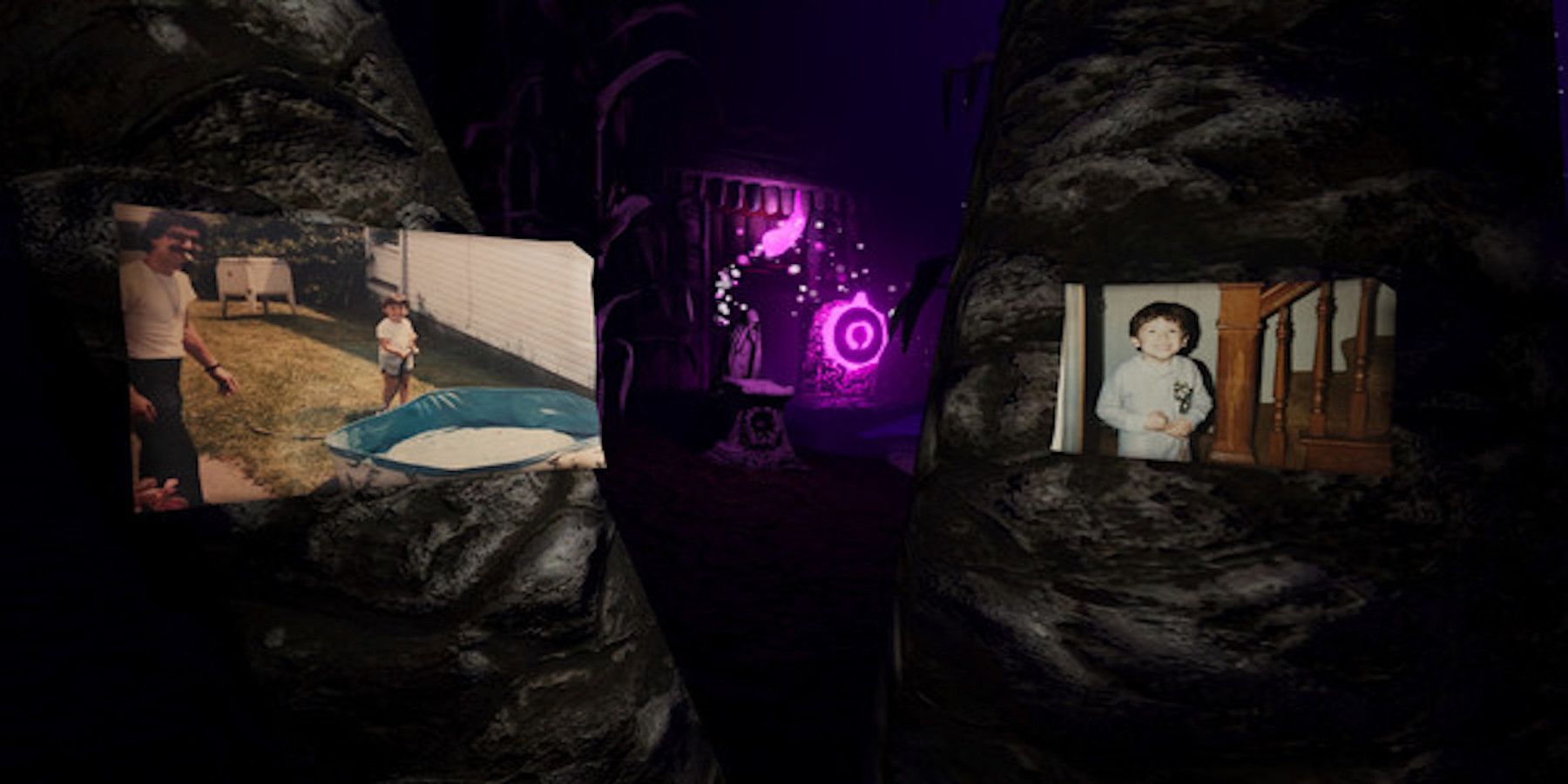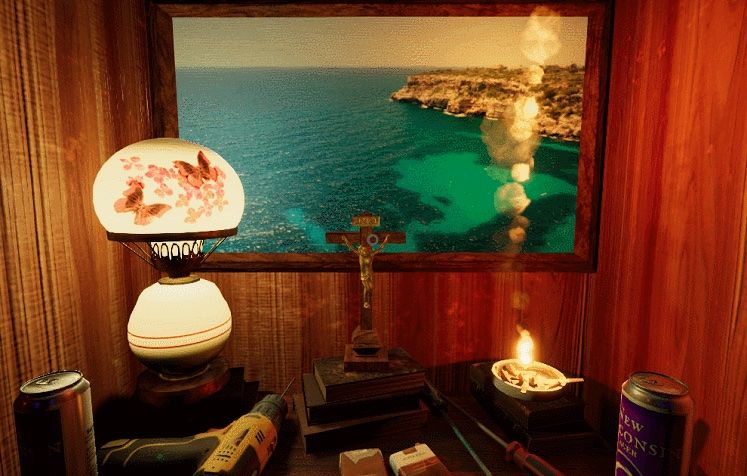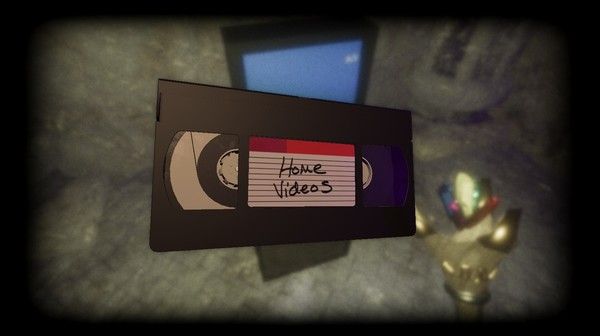Valley of Shadow has had different looks throughout its six years of development, but one of its most vital changes is its message to players. What once started out as a platform for co-creator Anthony Vacarro to express his trauma and grief has turned into a safe space for others who might be going through tough times. Players will play as Anthony and go through his healing journey, but with a magical twist.
Anthony told Game ZXC in a recent interview that Valley of Shadow has been able to push through development thanks to his brother, Nick, who handles the coding and puzzle design, and his sister, Maria, who voices Emma, the therapist and only other character in Valley of Shadow. Anthony described them as a "trifecta" and emphasized that their collaboration adds to the ingenuity of the game.
A Rare Gameplay Experience
An advantage that Valley of Shadow has is that "nobody wants to do this," but Anthony said he understands why: it can be painful. Valley of Shadow recounts the story of Anthony losing his father about seven years ago. Players are placed in dark, cold atmospheres with music that sounds as eerie yet mystical as Harry Potter's signature tunes, a feeling that Anthony said he was going for. Players are equipped with spells, crystals, and a staff, which he described as the "warmth" in all the "cold." Real-life mementos like photographs, audio, and classic 90s objects are sprinkled throughout the game. Solving puzzles are required to progress, but it also serves as a double meaning for Anthony's healing journey. Anthony added that part of the reason why Valley of Shadow was created under the autobiographical genre is because he wasn't seeing it anywhere else.
"I think that the medium of video games is maturing alongside the aging demographics that are now in our 40s, 50s, some of us are in our 60s, and there's really not a lot of games like this. They are increasing over the past couple of years, but there haven't really been a lot of games that have been maturing alongside of us. So I think that part of it was me wanting somewhere to put my pain and my feelings.
... There's no one to talk to me about this in the game space. There are some of the inspirations for it, like Gone Home , which was like a walking simulator... and it's like, “oh, this is making me feel some kind of way.” Maybe Valley of Shadow could kind of be that, but deeper and more personal... I was just like reaching into the dark for help.
Video Game That's More Than Entertainment
Initially, in 2017, the Vaccaro brothers started the project as a vibrant fantasy RPG, but eventually, those plans were scratched. Instead of letting players get lost in the magic of Valley of Shadow, Anthony shot for a narrative that says, "You can do this too." In the game, Emma helps players by using Cognitive Behavioral Therapy (CBT), which is the same therapeutic process that Anthony went through in real life.
Like as a player, you're just playing a game, you're having a good time. It's a video game, it's all entertainment. But at the same time, I feel like I had a responsibility–and so did Nick, my brother, and so did my sister Maria–to bring it back to the player and show you that you could probably benefit from something like this. You might be feeling things, you don't even know what they are. So you might be where I was. You might be experiencing something as a player that I wish I would've experienced so that I could've gone there earlier.
But Anthony noted that there are other titles in the autobiographical genre like That Dragon, Cancer, which was released in 2016 and is based on Ryan and Amy Green's experience of losing their son, Joel, who was diagnosed with terminal cancer at 12 months old; players experience the low and high moments of the parents' memory through a point-and-click styled adventure game. Another inspiration for Valley of Shadow, one that's not an autobiographical title, is 2011's To The Moon, which follows two doctors who attempt to fix a dying man's memories in order to fulfill his last wish; players control the doctors who must solve puzzles to create the artificial memories.
By combining the use of real-life storytelling, fantasy, therapy, and nostalgic artifacts, Anthony believes Valley of Shadow has an advantage.
We are as a culture, as a nation, as a global civilization, we are starving for human connection. Not just the human connection, but speaking about the deep stuff that we just are not allowed to talk about, you know, commercials don't bring this up. Cheerios commercials don't talk about the death of your father, you know what I mean? [laugh]
Historically, video games don't talk about this. They're for kids, right? Well, what about the adults? What about us? What about those of us who have now lost people? Those of us who have been through cancer?... But what about those of us that need to have somewhere to put this?
Valley of Shadow has the possibility and opportunity to attract different kinds of players: fantasy fanatics, puzzle solvers, and maybe even those yearning for a video game that resonates with them, rather than gives them an escape. The game will show and play real mementos from the Vaccaros' past, potentially creating an emotional connection with its players.
Valley of Shadow is projected to launch in the middle of 2023.

